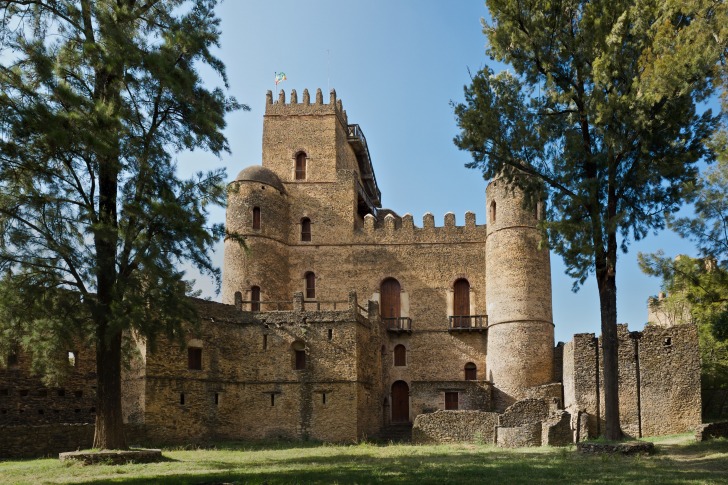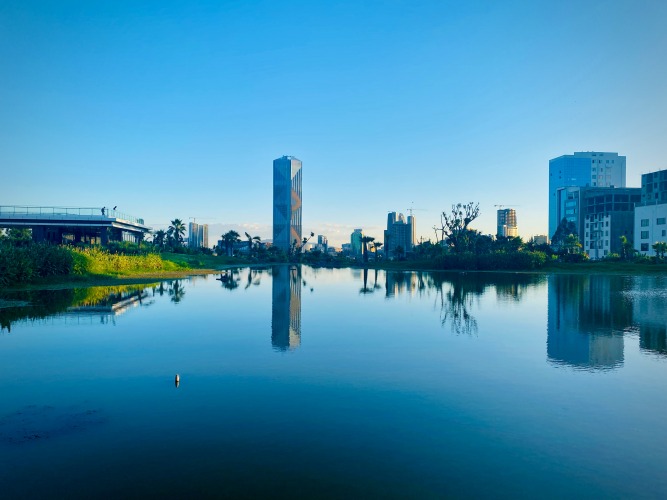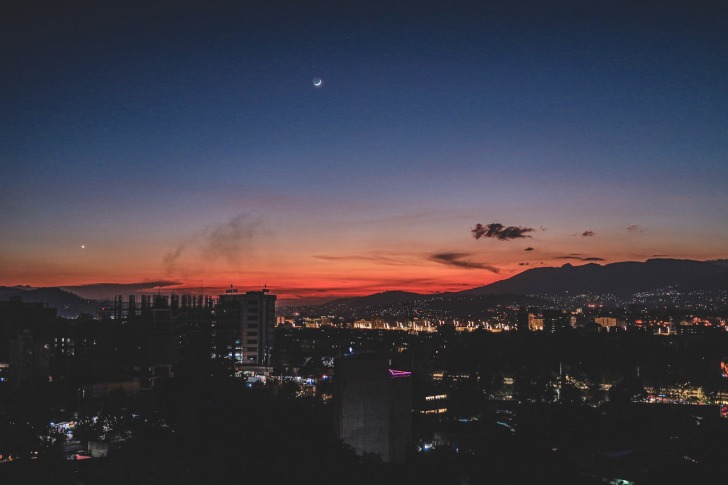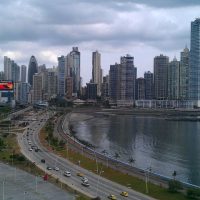Living in Ethiopia as a newlywed to someone from the country is one reason why you would consider moving to this African country.
Unfortunately, Ethiopia is not exactly the primary destination that most people think of when moving to Africa or abroad.
Let’s take a look at why that is in this list of cons, as well as pros for reasons why anyone would want to move to Ethiopia.

Contents
- Pros of Living in Ethiopia
- Cons of Living in Ethiopia
- 1. Malaria is the Most Common Reason for Death
- 2. Humanitarian Crises Occur All Too Often
- 3. This is a Third World Country
- 4. No National Election Since 1993
- 5. People Eat on the Same Plate With Others
- 6. You Should Not Wear Shorts in Ethiopia
- 7. Ethiopia is One of the Poorest Countries in Africa
- 8. Lower Standard of Living Compared to the US
- 9. Serious Concerns About Drinking Water Quality
- Pros and Cons of Living in Ethiopia – Summary Table
- Ethiopia Safety Overview
- Frequently Asked Questions
Pros of Living in Ethiopia
1. It is in Africa
Africa is a continent as vastly diverse as the US.
If you love to travel you most likely want to at least visit there.
Here is where those golden sands of the Sahara meet homelands of lions, giraffes, and antelope.
The animals you may see live and up close while on a wild safari tour are quintessential to the African experience.
Living in the backyard of an African jungle or desert provides you with plenty of encounters with African wildlife.
You can finally see and live among these wild animals and the associated flora.
Find out what a lion sounds like roaring late in the night, and watch herd after herd of elephants stomping the grasslands.
All you have to do is move to Ethiopia.
2. The Food is Delicious
Eating Ethiopian food is an experience all in itself.
The cuisine is marked by spices and proteins that we don’t normally eat in the US.
Goat roasted with spicy chilis is one great example of this type of dish special to Ethiopian cuisine.
However, stews are the most popular foods in Ethiopia, mainly because these dishes are a cheap way to stretch out ingredients.
Doro Wot is the most commonly consumed stew, and it is made of chicken or beef that has been slowly cooked.
3. Clothing Styles and Fabrics are Highly Prized
Ethiopians commonly wear an article of clothing called a shamma that is distinctive to their culture.
In addition, traditional fabrics from Ethiopia feature one-of-a-kind patterns and prints handmade by locals.
This allows you to share the vibrant culture through fabrics as you stitch your way through a wardrobe.
Whether you are a sewer or seamstress, or even a fashion designer in training, it never hurts to have access to new fabrics and color choices.
4. It Never Snows
Ethiopia is in the sub-Saharan desert where it rarely rains.
The climate is hot and arid, and snow is inconceivable.
For snowbirds and snow skiers, the only place to go would be Ras Dashen, a mountain that offers some snow in the winter season.
You do need to be an intermediate skier to navigate this peak, but if you already have some experience, you could ski in Ethiopia.
5. They Have 13 Months
In Ethiopia, they follow what is called a solar calendar.
Along with the first 12 months in the year, there is also a 13th month.
This month is very short, though, and does not have the traditional 30 days that the other 12 months have, as do the Gregorian months.
The Ethiopian 13th month is either five or six days, depending on whether it is in a leap year.
6. Ethiopians are Seven Years Behind
Ethiopia follows a calendar that puts its country seven years behind the US and other countries that are on the Gregorian calendar.
This is exciting to think about.
It begs one to wonder if their fashion choices and technologies are also nearly a decade behind the rest of the world.
You almost want to live there just to find out, and indeed to experience what it feels like to be seven years behind the rest of the world.
7. Round Thatched Roof Huts
The use of round thatched roof huts is the main reason why some people choose to live in Africa’s Ethiopia.
It is a great place to experience this type of architecture.
You get to learn how to build and maintain round, thatched roof huts.
This is a great skill to help you survive in any outdoor environment where there are natural resources around.
In addition, these are inexpensive to build and will allow you to get into a new home quickly.
As you will see, one of the cons of moving over to Ethiopia is the low cost of living.
At less than $1,000 a year’s income, you will be happy that you can quickly move into a new home of your own without spending a fortune.
8. Ethiopia is Africa’s First Independent State
Ethiopia was the first country in Africa to gain its independence.
This was achieved more than 2,000 years ago and frees this nation from British governance.

Cons of Living in Ethiopia
1. Malaria is the Most Common Reason for Death
The leading cause of death in Ethiopia is malaria resulting from waterborne parasites that are mostly carried by mosquitoes. Plan on sleeping under a mosquito net.
2. Humanitarian Crises Occur All Too Often
Constant humanitarian crises are happening in Ethiopia, creating havoc and making it nearly impossible to live in the country.
These crises, according to Human Rights Watch, include abuses by armed forces and deadly attacks of ethnic violence.
3. This is a Third World Country
Unlike first-world countries like the US, Ethiopia is a third-world country.
Ethiopia is not on the side of the West, East, or Communist bloc of countries. They are on their own.
The resulting differences in the first and third worlds involve poverty.
Because of the high levels of poverty throughout Ethiopia, the country is unable to purchase necessities, including potable drinking water and cheap food.
As a result, the nation does not have the same adequate essentials for the general public, as they do in first-world countries like the US and Russia.
4. No National Election Since 1993
Are you into politics?
If so, Ethiopia is a poor choice for you.
There has not been a national election in Ethiopia in about 20 years, which is also why this is a third-world country.
5. People Eat on the Same Plate With Others
Ethiopian culture requires eating from the same plate as other people.
If you are someone who prefers to keep their foods separated while eating or to eat alone, it will prove to be difficult to eat out in Ethiopia at the very least.
When visiting neighbors or friends, you will also be expected to share food from a plate.
You also don’t get a fork!
Or a spoon!
Plan on eating with your hands in most instances.
Not even a single chopstick!
6. You Should Not Wear Shorts in Ethiopia
Ethiopia might be as hot and dry as the Danakil Desert, but you should still avoid wearing shorts.
For starters, the national dress involves layering special pieces over underpants.
The concept of shorts is Western and therefore will cause you to stand out.
In a conservative country where you are already an outsider, it is considered rude and of poor judgment to wear shorts.
So, if you are someone who wears shorts and loves them, Ethiopia will prove to be difficult for your wardrobe and personal comfort, at least until you adjust.
7. Ethiopia is One of the Poorest Countries in Africa
The average gross national income (GNI) per capita of Ethiopia is very small–only $960 compared to an average $70,000 GNI in the US.
If you make a lot of money in the US, this places a target on you as an incoming home buyer.
As a result, there is an increased aggression among militia and security forces–and an increased chance you will be robbed or extorted as a result of making more money than the Ethiopian GNI.
If you don’t make more than $1,000 a year, you can’t consider traveling to another country.
Therefore, this creates a major gap in local salaries and salaries of immigrants from first-world countries.
8. Lower Standard of Living Compared to the US
Above all, the standard of living in Ethiopia is lower than the standard of living in the US.
Along with having less access to power and money through political alliances, as a third-world country Ethiopia is also struggling to provide necessities, such as the next point–drinking water.
9. Serious Concerns About Drinking Water Quality
Ethiopia has a problem providing adequate drinking water to its citizens because they are in the sub-Saharan desert.
The only available water is groundwater, such as ponds, rivers, and deep-dug wells.
When these go dry, there is a drought, which happens to most locals seasonally.
Having enough water is a problem, much less ensuring that this water is fit to drink.
Pros and Cons of Living in Ethiopia – Summary Table
| Pros of Living in Ethiopia | Cons of Living in Ethiopia |
|---|---|
| 1. It is in Africa | 1. Malaria is the Most Common Reason for Death |
| 2. The Food is Delicious | 2. Humanitarian Crises Occur All Too Often |
| 3. Clothing Styles and Fabrics are Highly Prized | 3. This is a Third World Country |
| 4. It Never Snows | 4. No National Election Since 1993 |
| 5. They Have 13 Months | 5. People Eat on the Same Plate With Others |
| 6. Ethiopians are Seven Years Behind | 6. You Should Not Wear Shorts in Ethiopia |
| 7. Round Thatched Roof Huts | 7. Ethiopia is One of the Poorest Countries in Africa |
| 8. Ethiopia is Africa’s First Independent State | 8. Lower Standard of Living Compared to the US |
| 9. Serious Concerns About Drinking Water Quality |
Ethiopia Safety Overview
READ THE FULL REPORT: Ethiopia Safety Review
Safety Index:
- OVERALL RISK: HIGH
- TRANSPORT & TAXIS RISK: MEDIUM
- PICKPOCKETS RISK: MEDIUM
- NATURAL DISASTERS RISK: MEDIUM
- MUGGING RISK: MEDIUM
- TERRORISM RISK: MEDIUM
- SCAMS RISK: MEDIUM
- WOMEN TRAVELERS RISK: MEDIUM
Frequently Asked Questions
What language does everyone speak primarily in Ethiopia?
What is the common currency they use in Ethiopia?
The Ethiopian Birr is the common currency that you need when shopping and living in Ethiopia.
You can exchange money when you arrive in the country for the best exchange rate.
What is the major mode of transportation in Ethiopia?
Tourist vans and private buses, as well as taxi cabs, provide transportation for Ethiopians.
This is how most locals get around town and between big cities.
However, there are no subway tunnels or major public transportation services in Ethiopia.
How is Ethiopia toward the LGBTQ community?
No, because Ethiopia considers homosexuality to be a crime.
Therefore, it is wise to minimize public displays of affection and to dress conservatively in order to reduce attention to yourself, especially if traveling as a gay couple.
Will I need to get a special visa to go to Ethiopia?
No, there is no special visa that you need to visit Ethiopia.
In fact, you might not even need a visa to travel to this African country.
However, if you are planning to move to Ethiopia for any time frame, you will want to review a visa application.
This could improve your chances of being able to secure protection and support from the US Embassy when living abroad as well.












The official language in Ethiopia is Amharic it is widely spoken by majority of the people.
In fact it was four times passed National Election. But credibility is Argumental.
Actually your article is not evidence based for instance you said there was no election since 1993 but 4 national election passed …2nd you mentioned Became independent from British but Ethiopia is never colonised country in Africa.
Widely spoken languages Amharic(spoken in Ethiopia and Eritrea ) and Afaan Oromo(In Ethiopia ,Kenya,Somalia countries).
What is the percentage of muslim and christians ?
There is internal war always which prevents the country from growing
Majority of people are Christian but around 37% are Muslim.
Nonsense!
How safe is ETHIOPIA for migrate